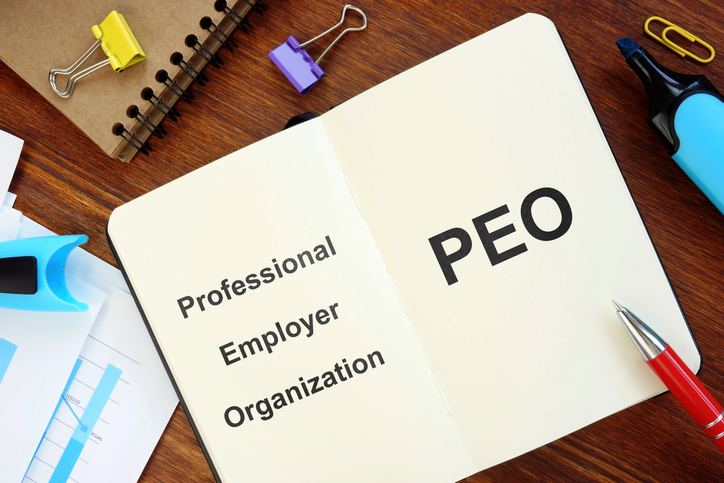It’s no secret that HR management is an extremely complex and time-consuming process for any small business. That’s why many small business owners turn to Professional Employer Organizations (PEOs) to help companies take control of key HR functions like payroll and employee benefits. Of course, there’s one major question for anyone interested in these services: How much does a PEO cost?
PEO pricing can vary greatly depending on the PEO you work with and the services you need. Regardless of your needs, it’s critical to partner with a PEO that can not only simplify your business’ HR needs, but also save your organization more money than you spend. Let’s break down how PEO pricing works and what you can expect to pay for HR outsourcing.

What Do You Pay for When Partnering with a PEO?
There are multiple factors that impact PEO pricing. The simplest answer is your PEO costs cover a couple of different items:
- Administrative fees
- Setup costs
- Pass-through costs or additional fees associated with different HR functions
It’s important to note that PEO costs only apply to what you pay the PEO for services rendered and not business costs like payroll taxes and health insurance premiums. For example, you would still owe payroll and workers’ compensation taxes even if you did not partner with a PEO. However, a PEO can work with you to manage these functions and potentially save you money through means like master health plans and self-insured workers’ compensation.
Administrative fees
A PEO’s administrative fees are a set rate that accounts for all the ongoing work involved with managing a company’s account. These costs cover tasks that vary from handling payroll and payroll tax deposits to managing and paying workers’ compensation premiums. It also covers any time spent assisting business owners with any HR problems and questions that inevitably arise over time.
PEO pricing for administrative fees can vary greatly based on the company you work with and the services they provide. For example, a PEO that only offers basic payroll and workers’ compensation assistance will have lower rates than a PEO with a comprehensive suite of HR services.
Administrative fees are typically invoiced every pay period. The specifics on how much your company is billed for administrative fees depends on the pricing model. There are three main pricing models that PEOs use for administrative fees.
- Percentage of payroll
- Per employee
- Per check
Percentage of payroll
This pricing model bases administration fees around a flat percentage of your overall payroll. The percentage charged is based on multiple factors such as your total number of employees and payroll. The exact percentage depends on the PEO, but a typical range falls between two and six percent. However, business with seasonal employees may see percentages higher as a result of all the part-time workers.
One advantage of the percentage model is that it helps business owners understand what they’re paying each pay period in administration fees – simply identify total payroll for the period and apply your flat percentage. However, this percentage can pose problems on occasions when your payroll is notably higher than usual, such as bonus payout periods. Depending on the PEO, you may be able to make special arrangements to adjust for bonus runs and avoid extra administration fees.
Per employee
Another pricing model is to charge an administrative fee for each of your company’s employees. This method means that a PEO’s fees aren’t tied to total employee compensation, which can be an attractive option.
The exact per employee rate can depend on the PEO in question. A more basic PEO may have rates as low as $10 per employee per week, whereas companies with more comprehensive offerings and customer service may be four times that amount.
Per check
The final pricing model is to pay administration fees per check. The PEO can calculate the number of payrolls and identify a flat fee to charge for every paycheck you hand out each pay period. The per check model is similar to the per employee approach in that it doesn’t tie your fee rates to your overall payroll.
Per check fees can become complicated if your business has a large number of part-time employees who split up a certain number of hours. For example, if one person works a different day each week, you’ll need to cut checks out to each individual. This scenario will drive up your fees as opposed to one person working the same amount of hours. As such, the per check pricing model is better suited for businesses with more full-time employees.
One-time and annual setup fees
All PEOs will have some form of initial setup fee when you start your partnership. These one-time setup fees are designed to cover all the frontloaded services done to get your company up and running with a PEO. These tasks include a wide variety of setup project, some of which include:
- Onboarding employees
- Gathering necessary documents and information
- Establishing payroll and direct deposit
- Setting up withholdings for payroll, benefits, 401(k), etc.
As you may expect, these initial setup fees vary depending on your PEO of choice. Typically, you’ll find that the majority of these fees range from $50 to $200 per employee. Certain services may also require additional setup fees or annual costs. For example, companies that use a PEO to manage 401(k) plans would owe a small setup fee for the plan, along with an annual service charge.
Additional services
While administrative and setup fees make up the vast majority of PEO costs, some PEOs also offer a variety of additional services available when needed. The exact services depend on what the PEO had to offer, which can include:
- Background checks
- Drug and alcohol testing
- Drug-free safety plans
- Flu shots
- Employee assistance programs
- Training programs (First aid, CPR, supervisor/leadership)
- Recruitment/ad placement
- Translation services
Each of these services will typically call for some type of pass-through cost when you need them. The pricing models vary greatly based on the service. For example, a background check may cost around $10 to $40 for each check. Other services may charge a flat rate based on the number of employees participating. Your PEO should be able to provide clear pricing for these additional service in advance.
Bundled vs. Unbundled PEO Billing
Pricing models and setup fees are only part of the billing puzzle. It’s also important to factor in how your PEO presents your bill every pay period. There are two main ways that PEOs invoice companies:
- Bundled bills
- Unbundled bills
Some PEOs opt to bundle all their rates and other HR costs into a single line item. This process makes it difficult to parse out exactly how much you’re paying for each cost, including your PEO fees. While you can subtract all of your HR costs – social security, Medicare, workers’ compensation, etc. – it takes time and knowledge of established tax rate to break down your exact PEO costs.
Unbundled billing simplifies this process. This method breaks out each cost as an individual line item, allowing you to clearly see what you’re being charged for everything on your invoice. As such, unbundled billing means you can always identify how much a PEO charges for administrative fees without an extensive amount of math.
Find the Right PEO for Your Business
Comparing quotes is an important part of evaluating PEOs, but costs are just one part of the puzzle. It’s important to find a PEO that not only offers the services you need, but also the best, most cost-effective approach to making your business simpler, safer, and stronger.
All PEOs are not created equal. At Group Management Services, we strive to take the administrative burden off your shoulders and work with you to find the right solution for your HR needs. Contact GMS today to talk to one of our experts about how we can save you time and money through expert HR management.



